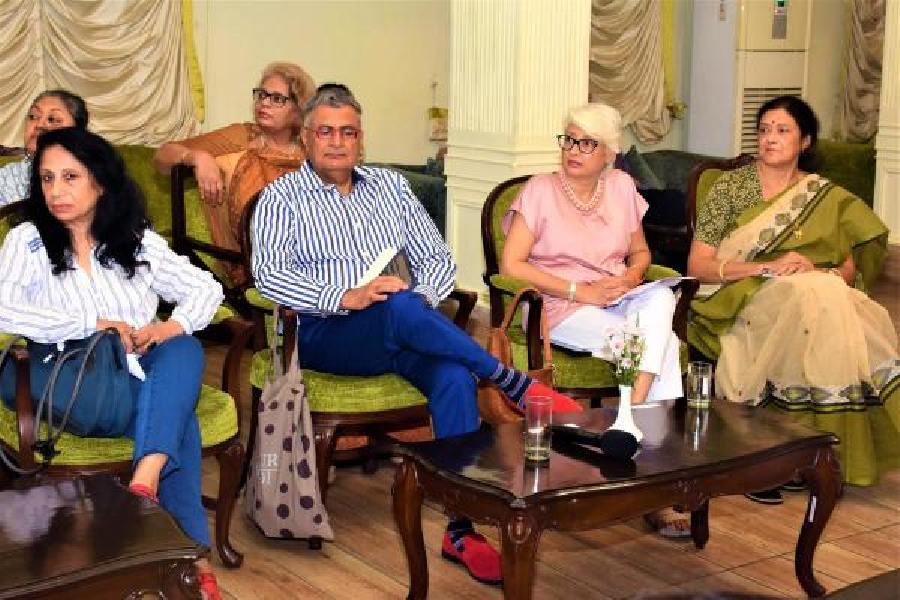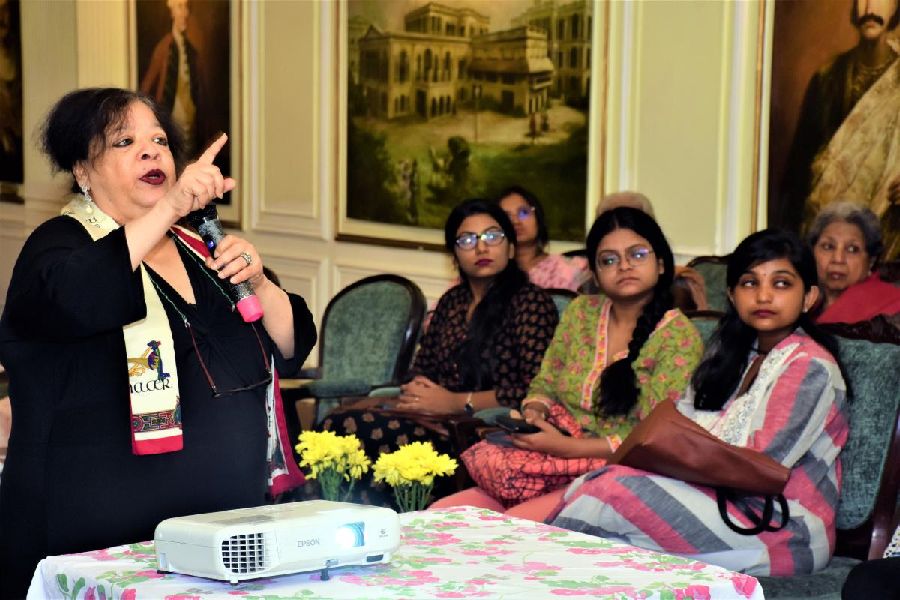The Bengal Club Book Club, which has grown from strength to strength over the past three years under the strategic guidance of conceptualiser and anchor Julie Banerjee Mehta, discussed Salman Rushdie’s remarkable new novel Victory City. With a large contingent of serious and loyal members and readers across academic and social institutions, the discussion opened with Banerjee Mehta’s introductory remarks about the courageous Rushdie’s feisty comeback after the heinous attack on him that blinded him in one eye in August 2022.
“Rushdie’s irreverence to the brutality and illogical actions against the marginalised by power, and his extraordinary ability to ferret out the senseless methods power uses to project ‘truths’, make Rushdie an exceptionally inventive writer. He consistently dares cock a snook at sensitive religious and political subjects and this makes him a controversial figure. Rushdie is perhaps one of the most ingenious and honest writers of our times who has made it his life’s goal to give voice through fable, fantasy and magic realism to the millions on the fringes of our fractured world. Victory City is going to become this century’s representative novel,” said Mehta on the evening of May 23.

Members of the Bengal Club’s Book Club at the discussion on May 23
The evening proceeded with Harish Mehta remembering his meeting with Rushdie and hosting a dinner for him with his colleagues after his Booker Prize win. Reflecting on Rushdie’s writing and his book Victory City, Mehta said, “In Victory City, we meet Rushdie the historian once again, but with a difference. He’s now doing history from below. This time around, he marshals a formidable array of historical archives and sources — all fictitious, of course. Rushdie as the self-appointed narrator employs at least four such sources, namely the epic poem of Pampa, the rantings of a magical parrot, the ambiguous narratives of the itinerant trader Niccole de Vieri, a royal note-taker named Tirumalamba Devi, the redoubtable traveller Ibn Batuta getting a cameo mention.”
Taking over, professor Chaitali Moitra talked about Rushdie’s craft in his 15th novel. She said, “In Victory City, Rushdie creates a multi-dimensional understanding of power, politics, statecraft and the place of the individual in the flow of both real and magical dimensions of time. He uses very carefully researched history, epigraphy, travelogues and the power of language to create a powerful narrative which, unlike his many novels, is linear. After going through repeated assaults and attacks, he is able to give his readers a profoundly humanistic novel.”
Raka Mukherjee, a young member, later described her perception of Rushdie’s titular character Pampa Kampana and faux feminism. She said, “Rushdie’s opus reads like an epic satire with Pampa Kampana at the centre. Being abused and abandoned at a very young age by the horrors of patriarchy, she engages in the creation of Vijayanagara, to win over her trauma, but ironically repeats the pattern with a magical matriarchy that questions the deep-seated problems in faux feminism(s) that act not against but as the obverse of patriarchal oppression through centuries.”
Terming Victory City a brilliant comeback, Anasuya Pal pointed out: “Pampa actively contributed to women’s empowerment, ensuring that equal opportunity was available to them by way of education, art, culture and religious freedom. For a woman born a potter’s daughter, Pampa painted the canvas of her 250-year-long life in extraordinary colours — a brilliant comeback by Rushdie.”
Moving on, Anju Munshi argued that the novel is a deliberate and intelligent take on the contemporary socio-political climate in the world — the ethical, moral dilemmas of our own existence — where “life is fiction” and “word the victor”.
A few members also joined digitally. Hanoi-based Viveck Crishna said, “It was so satisfying to relive the mastery of Rushdie’s words and images. His use of magical reality entwined around a very firm historical base, and the use of an invented epic literary tale, with obvious echoes of the writings of The Mahabharata and the Ramayana, made for a great ride.”
In concluding the lively session that stretched close to two hours, the anchor invoked Salman Rushdie’s own beliefs about how the homeland is such a compelling force in the diasporic writer’s imagination: “The pivotal matriarch Pampa Kampana was completely fictional and Rushdie states that he wanted to write a story about the South of India, being from North India, and a Bombay boy. Rushdie had the image of Vijayanagara for over 15 years in his head.”
Pictures courtesy: The Bengal Club
